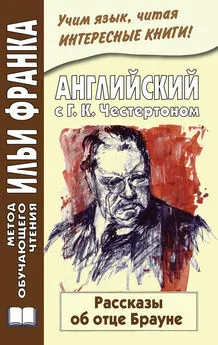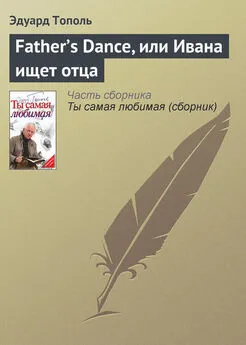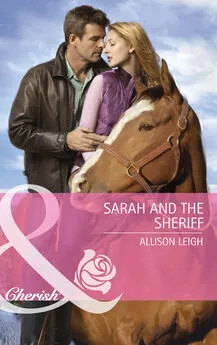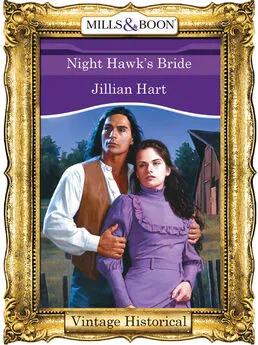Sheri WhiteFeather - Jesse Hawk: Brave Father
- Название:Jesse Hawk: Brave Father
- Автор:
- Жанр:
- Издательство:неизвестно
- Год:неизвестен
- ISBN:нет данных
- Рейтинг:
- Избранное:Добавить в избранное
-
Отзывы:
-
Ваша оценка:
Sheri WhiteFeather - Jesse Hawk: Brave Father краткое содержание
Jesse Hawk: Brave Father - читать онлайн бесплатно ознакомительный отрывок
Интервал:
Закладка:
Her secret had blinded him from anything but rage. Damn her for not telling him about their baby—for making him miss the first eleven years of his son’s life. She knew how badly he had wanted children, how he longed for a family of his own. But Jesse had given up on that dream soon after Tricia’s betrayal. Children meant a wife, and a wife meant falling in love—something he never intended to do again. Sure, maybe the weak part of him had never quit missing Tricia, but the other side, the proud, willful side, had suffered from her disloyalty—almost to the point of hating her for it. And now, God help him, he had no choice but to befriend her.
A deafening sound drew Jesse’s attention. He dried his hands and went back into the living room where Barney had decided to blast the volume on the TV.
Having abandoned the iguana, the African gray patrolled the coffee table, protecting the remote control like an armed guard.
“Come on, pal, that’s too loud.” Jesse reached for the remote, then scolded Barney when the parrot went for his hand. “Don’t even think about.”
Barney ducked his head in what looked like shame. Jesse set the volume on mute and grinned at his feathered friend. “Want to learn a new word?”
The bird stepped closer, inching its beak toward the remote in Jesse’s hand. He hid the device behind his back. “No TV. A new word.”
“Cochise,” Barney squawked.
“Cochise is outside with the other dogs.” Although some would disagree, Jesse believed parrots did more than mimic. They were extremely intelligent birds, and Barney knew that Cochise was the dog that shared their home.
“Dill-on,” Jesse said, emphasizing each syllable.
He wanted Barney to learn his son’s name, as he intended to introduce Dillon to all of his pets—hopefully soon. While the bird listened, Jesse sat on the edge of the coffee table and continued to repeat the name in a slow, patient tone.
A short time later, the African gray fluffed his feathers. “Hello, Jesse.”
Jesse smiled. Was Barney’s parrot-voice spiced with an Oklahoma twang, or was that his imagination? “Dillon,” Jesse coaxed once again. “Hello, Dillon.”
“Hello, Jesse,” came the quick reply.
No. No. No. “Hello, Dillon.”
Barney bobbed his head. “Hello, Jesse. Hello.”
Jesse set the remote down. “We’ll try later, okay?”
“Okay.” The bird repeated the familiar word, then pecked at the buttons until he discovered sound once again.
Jesse’s mind drifted back to his son. Would he meet Dillon tonight, or would the child refuse an introduction until he felt certain his parents had worked through their differences? He removed Tricia’s business card from his pocket and gazed at the address she’d written. What would Dillon think of him? Jesse wondered as he studied the card. Would he fit the boy’s image of a father? Or would Dillon be expecting someone suave and sophisticated, like the kind of men Tricia probably dated?
Jesse combed his fingers through his hair. He couldn’t enter his son’s home for the first time empty-handed. He should bring the boy a gift. But what? He had no idea what would interest an eleven-year-old, especially one born into wealth. Dillon probably had every video game and computer software available, not to mention sports equipment. The thought nagged him. How was he going to compete with Tricia’s money?
You’re not even going to try, a sensible voice in his head said. Parents shouldn’t compete for their child’s affection. Love comes from the heart, not the wallet.
Even so, he still intended to take his son a present. He felt for the leather strap around his neck and reached under his shirt for the medicine bag he’d worn since his own youth. Yes, he’d take Dillon a gift.
And what about Tricia? Should he offer her something as well? Flowers perhaps? She used to love sunflowers. Their bright yellow heads always made her smile.
Jesse went back into the kitchen and began scanning the phone book. He’d make dinner reservations first, then locate a florist for the biggest, brightest sunflower arrangement he could find. Tricia had given birth to his child, and for that he should thank her.
“Hi, Elda.” Patricia set her briefcase on the kitchen counter and greeted her friend. She preferred to think of the nurturing woman as a friend rather than an employee. Raymond Boyd had hired Elda Yacabucci as a nanny for Dillon while Patricia suffered the stigma of being an unwed mother in an affluent, but narrow-minded, community. Patricia had protested at first, not wanting her son raised by nannies. But she’d given in soon enough when she’d realized Dillon needed care while she furthered her education.
The year Patricia and Dillon moved out of the Boyd mansion and into their own home, they’d taken Elda along, offering her accommodations in a guest house located on the property. These days, Elda did more cooking and cleaning than baby-sitting, but the older woman didn’t seem to mind.
“Dillon’s having a snack in the den,” Elda offered, as she headed toward the laundry room, basket tucked against an ample hip. “I made lasagna for lunch, and now that boy’s hungry again.” Elda, a nonjudgmental woman who attended mass every Sunday and routinely wore her salt-and-pepper hair in a tidy bun, glanced back and sent Patricia a pleased smile. “I fixed him another plate.”
Patricia returned the smile. For most kids a snack would consist of crackers and cheese or a piece of fruit, but then, Dillon wasn’t most kids. He thrived on Elda’s leftovers.
Patricia poured herself a cup of decaf and went to the room they referred to as the den. Dillon watched TV from the sofa, a tray of half-eaten food on a glass-topped coffee table. He appeared relaxed in the brightly lit surroundings, his feet tucked under him. Patricia didn’t think dens should be dark and brooding, so she’d decorated the room with printed fabrics and blond woods. The pale decor suited the rest of the house with its high ceilings and whitewashed walls.
“Hi, honey.”
He turned away from the TV. “Oh, hi, Mom. You’re home kinda early.”
Patricia sat in a recliner and placed her coffee on a nearby end table. No point in wasting time, she thought. “I came home to talk to you. I saw your father today. He stopped by the office.” Barged in was more like it, but she’d have to withhold the more colorful details from Dillon.
The boy picked up a decorative pillow and twisted the end. “What did he want?”
“We talked about you, and then he invited me to dinner.” That, she decided, was certainly a simplified version of the emotional meeting.
Dillon’s gray-blue eyes widened. “Dinner? Really? Are you going to go?”
“I thought it might be a good idea.” She sipped the mocha-flavored drink and tried to appear calmer than she felt. “He’s trying to make an effort to be friends.”
“Then I suppose you should go. Be kinda rude not to.”
She nodded. Apparently that was Dillon’s way of giving his permission. The thought relaxed her somewhat. “Do you think you’d like to meet your dad tonight? Maybe just say a quick hello?”
Fear crept into his eyes. “He’s coming here? To our house?”
Clearly Dillon wasn’t ready to face the man, the stranger, who had fathered him. “That’s all right, honey. There’s no hurry for you to meet him. You could stay at Elda’s while he’s here.”
The boy had a different suggestion, one that said he wanted to hide out—avoid even the slightest chance of running into Jesse just yet. Apparently Elda’s guest house was still too close. “Why don’t I go to Grandpa’s instead? I could spend the night there. Grandpa won’t mind.”
“Sure. That’s fine.” She could hardly blame Dillon for his panic. He’d been surrounded by a loving, familiar support group. And now, as he neared the beginning of adolescence, his missing father had returned, stirring raw emotion.
Patricia rolled her shoulders. “I guess I’ll go up and take a shower.” Or turn on the jets in her tub and soothe the ache in her muscles and the edge in her nerves. She, too, was panicked about spending time with Jesse.
Jesse straightened his jacket and eyed the outside of Tricia’s house with mounting anxiety. He’d never been completely comfortable in Arrow Hill, with its overly manicured yards and custom-built homes. The farther he’d traveled up the hill, the more uncomfortable he’d become. Maybe because the houses kept getting bigger, more extravagant. Jesse had always been a country boy at heart. A small ranch dwelling suited him fine.
Tricia’s sprawling two-story home was modern in design, with large bay windows and plenty of shrubbery illuminated by torchlights. He rang the bell, hoping his appearance would meet with Dillon’s approval. Jesse had banded his hair into a ponytail and wore dark jeans, a tan shirt and black jacket. He wasn’t a fancy man and never would be, but he had a frame that well suited the cut of Western-style clothing.
“Hi.” Tricia opened the door. “Come in.”
He stepped into the tiled entryway, feeling suddenly foolish. A man as tall and dark as he, carrying a bright yellow bouquet, probably looked a bit odd. He offered the sunflowers to Tricia quickly.
“I remembered that you used to like these,” he said. “Hope you still do.”
“They’re wonderful. Thank you.”
The familiarity in her smile made his heartbeat skip. And when she hugged the bouquet to her chest, she could have passed for a teenager again. But she wasn’t, Jesse reminded himself. Tricia was a woman now. He devoured her long, lean form in one slow, agonizing sweep. An incredibly sexy woman. A white knit dress, laced with tiny silver threads, shimmied down her curves, then stopped to expose those endless legs and a pair of wicked pumps.
“You look terrific,” he heard himself say.
“Thanks. So do you.”
He followed her past a cream-colored living room and into a kitchen that sparkled with white counters and slick black appliances. Beside a tall window, four black chairs circled a contemporary white table. She arranged the sunflowers in an ebony vase and placed it on the table.
“Can I get you a drink?” she asked.
“No, thanks. Is Dillon here?”
“I’m sorry, no. He decided to spend the evening with his grandpa.”
Immediately a rage of red-hot envy shot through Jesse’s gut, turning his stomach inside out. “You mean your father?”
Tricia flashed a challenging look. “That’s right. My father.”
He wanted to turn and walk away, then hire a sharp, city attorney to legally pry his son from Raymond Boyd’s child-stealing clutches. But that, he knew, would only end up hurting Dillon. Jesse would have to win the boy over with love and patience. Something he doubted Raymond Boyd was capable of offering. Boyd may have tainted Tricia with all that money, but Jesse would be damned if he’d lose his son to that cocky old bastard’s checkbook.
“Why don’t you give me a tour of the house,” he suggested, in an attempt to redirect his focus. For Dillon’s sake, he had to befriend Tricia, and arguing about her father would only cause a bigger rift between them.
Her expression softened. “All right.”
The house was too modern for Jesse’s taste, with too much glass and not enough wood. It was well crafted, he supposed, but it lacked the charm of older homes—the history and warmth. Tricia had chosen pale colors throughout, so when they stepped into her bedroom the shock of royal blue pleased him, as did the stained-glass window. Jesse scanned the room and noticed traces of the slightly careless Tricia he remembered: an open book, facedown on a nightstand, a coffee cup with lipstick stains, a discarded silk robe on the bed.
Читать дальшеИнтервал:
Закладка:


![Эдгар Берроуз - Красный Ястреб [The Red Hawk]](/books/292743/edgar-berrouz-krasnyj-yastreb-the-red-hawk.webp)






